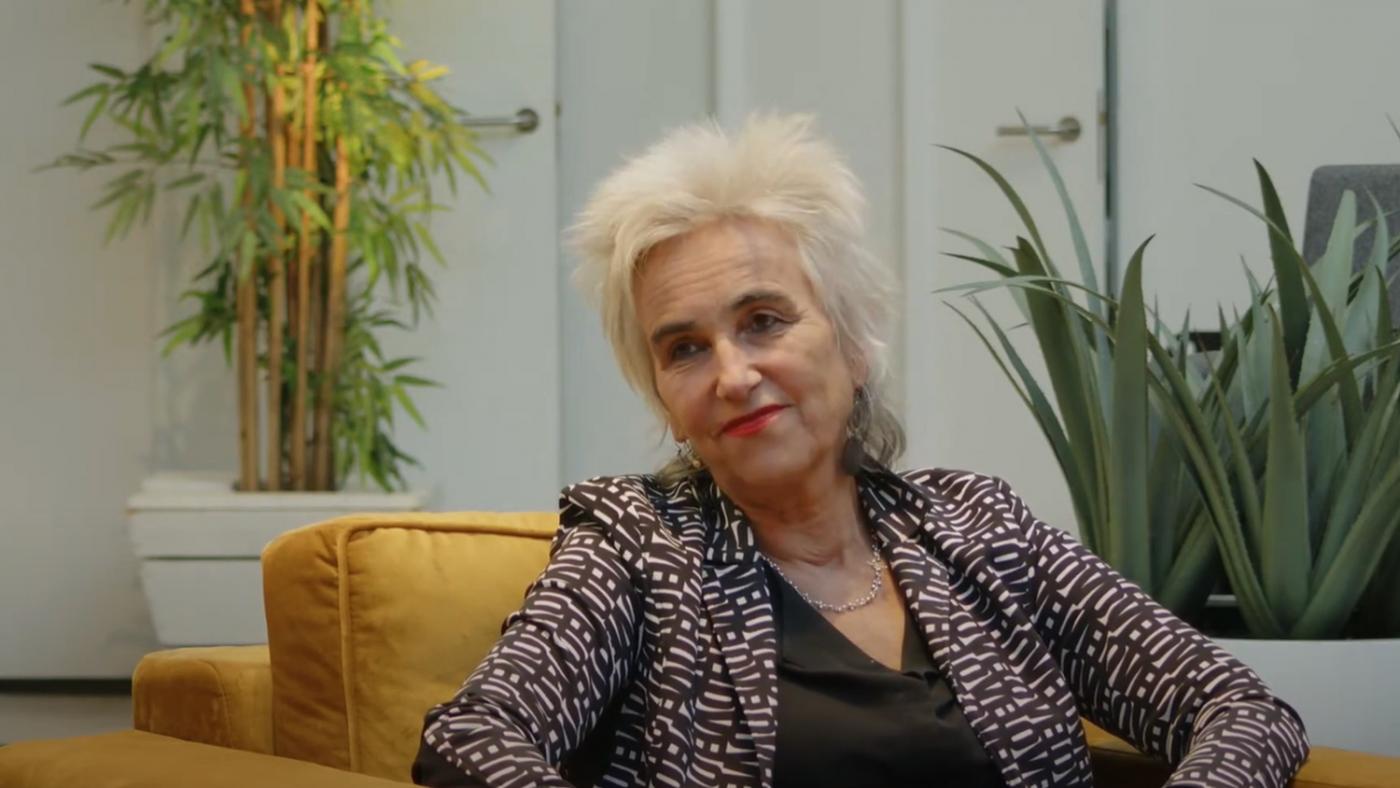Marion Koopmans on tour
Threats against scientists: 'We really should do something about that'

The coronavirus, which had faded into the background, suddenly came to the fore again when the virologist Marion Koopmans went on a College Tour on October 6. Two days before that, the National Institute for Public Health and the Environment (RIVM) announced a new wave of the virus this autumn.
According to her, the issue is "less urgent" now, despite the fact that the number of infections doubled in a week and the number of hospital admissions increased rapidly. “We are in a different phase”, she explained. “The impact of the virus is smaller as there is much more immunity.”
Now that the Netherlands has a new Minister of Health, the policy is also changed. “Everyone has now had the possibility to take a vaccine. We are changing tack. A part of the responsibility is being put back to society."
Cutting hall
Koopmans seemed relaxed, therefore. The conversation took place in the Anatomy Building where the Faculty of Veterinary Sciences used to be located. She talked about the first time she walked into the cutting hall, a moment that dominates her memories of the building. “Horse heads were on the long tables and it all stank of formalin. Quite heavy.”
Koopmans’ deep-rooted fascination for the Veterinary Sciences and her urge to break away from her childhood home in the village of Steyl, in Limburg, led her in 1974 to the big city of Utrecht. She used to end her evenings in the student disco, the Woolloomooloo, as she lived close by.
Threats
After her studies, she started her career as a virologist. Currently, Marion Koopmans works as a Professor, an advisor of the European Committee, and a member of WHO's research team. Earlier this year, UU announced her as Alumnus of the Year.
Marion Koopmans is famous in the Netherlands as a member of the Outbreak Management Team (OMT). She has been advising the government about the steps to take to tackle the coronavirus pandemic for just over two years — a role that makes her a target for the anti-vaxxers.
How does she deal with people who react hostile to her recommendations, a recently graduated student of Governance & Policy asks? “Funnily enough, I am a bit used to it by now”, Koopmans replies.
She emphasises that it is important to understand what these people are concerned about, although she doesn’t engage in conversation with the most extreme ones. “I don’t think doing that is of any use. I pay the price personally and professionally as I can’t move freely anymore,” she says. She is firm about the people who cross the line: “We really should do something about that as a society.”
Human and animal
The coronavirus pandemic has strengthened Koopmans’ belief in the importance of virology within public health. “I feel more motivated than ever,” she says to a student who asks her about how the pandemic has influenced her interest in the discipline.
“I have been fascinated for the longest time by the phenomenon of what exactly happens at the interface between animal, human and environment for and what happens when you mess with it a bit more. Such a virus outbreak is what happens.”
Although the coronavirus shook the world, we are not sufficiently aware of the role humans play in virus outbreaks, according to Koopmans. We're not aware of how the growing human and animal populations disturb the balance of our ecosystem. Politicians also discuss this too little, in her opinion. “How do you put such difficult topics in a better spotlight?” Koopmans thus wonders. “I have an active role in that regard, both as a scientists and as a citizen of the world.”